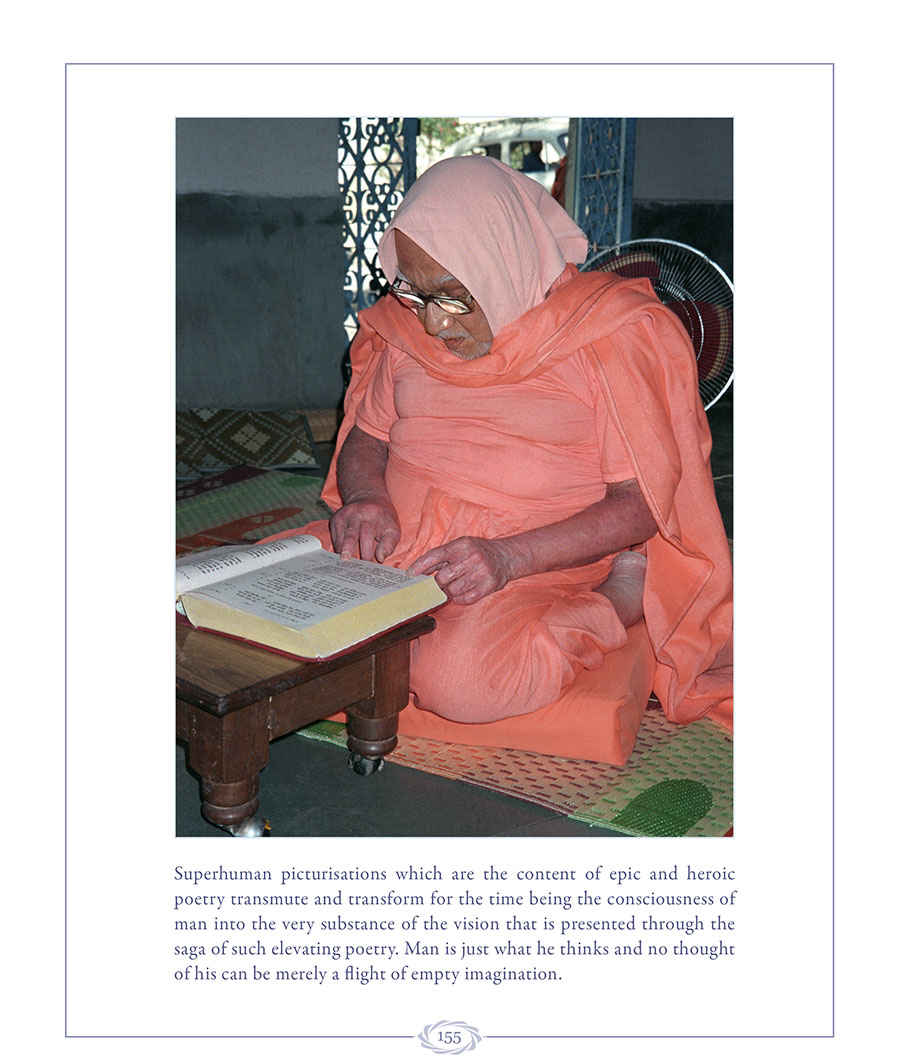The Brihadaranyaka Upanishad - 12. Swami Krishnananda.
========================================================================
=======================================================================
Tuesday, August 09, 2022. 07:00.
Chapter- II :
FOURTH BRAHMANA :
THE CONVERSATION OF YAJNAVALKYA AND MAITREYI ON THE ABSOLUTE SELF : 12.
=========================================================================
Mantram-12.
Sa yathā saindhava-khilya udake prāsta udakam evānuvilīyeta,
na hāsya udgrahaṇāyeva syāt, yato yatas tv ādadīta lavaṇam eva,
evaṁ vā ara idam mahad bhūtam anantam apāraṁ vijñāna-ghana eva;
etebhyo bhūtebhyaḥ samutthāya, tāny evānuvinaśyati; na pretya saṁjñāsti, iti are bravīmi, iti hovāca yājñavalkyaḥ.
Sa yathā saindhava-khilya udake prāsta udakam evānuvilīyeta:
Another illustration is given here to make out the nature of the Supreme Being from whom all knowledge proceeds. If you dissolve a little piece of salt in water, what happens? The salt becomes one with the water. You may take any part of that water, it will taste salty, and you cannot find out where the salt is. It has become one with the water; it is everywhere in the water.
Na hāsya udgrahaṇāyeva syāt, yato yatas tv ādadīta lavaṇam eva evaṁ vā ara idam mahad bhūtam anantam apāraṁ:
Just as any part of that water in which salt is dissolved will taste of salt only, because of the pervasive character of the salt that has got dissolved into the water, so is the Infinite Being. How? Idam mahad bhūtam anantam apāraṁ vijñāna-ghana eva: It is a mass of knowledge; it is a solidity of wisdom; it is a substantiality of what we regard as the highest Consciousness; that is this ultimate Reality. Wherever you touch, it is that which is touched, and wherever you taste anything you are tasting that only, and anything that is seen anywhere is naturally that only. Whatever be the corresponding object of a particular sense-organ, it is the form of That which is seen. And the mind thinks nothing but That, not knowing it is so doing –
vijñāna-ghana eva.
--------------------------------------------------------------------------------------------------------------------------
Etebhyo bhūtebhyaḥ samutthāya, tāny evānuvinaśyati; na pretya saṁjñāsti:
This consciousness which is solid Reality ultimately, the substantiality of the whole universe, appears to localise itself in the body of individuals by entering into the process of permutation and combination of the elements earth, water, fire, air, ether, etc. A particular combination in some percentage of these five elements becomes a body, an embodiment. When consciousness enters this particular formation of the elements, it is what we call the individual, the Jīva, or a particular finite body. It arises in this form and dissolves itself in this form, as it were, as long as it is connected to this formation of the elements. The birth of the individual and the death of the individual are described here as being the consequence of the association of consciousness with the formation of the five elements in a certain proportion. It is the elements, the five elements which combine in certain ways, under different conditions, that are responsible for the objects of sense, as we call them. Animate or inanimate, whatever may be – all the objects, all the bodies are really the elements in some shape, colour and tangibility. They appear to have a value, a worth, and meaning, because of the entry of consciousness into them. And when the formations change, when there is a different type of formation of the elements, that is called the death of the individual. It is not a death really; it is a transformation, a reformation of the particular form into which these elements have been cast by the need of that unit of consciousness which is called the Jīva. When this consciousness gets entangled in the forms of the elements, it is called birth. When it is freed from them, it is called liberation. When it is freed from the elements, it will not be conscious of any particular thing –
na pretya saṁjñāsti.
-----------------------------------------------------------------------------------------------------------------------
Yājñavalkya tells Maitreyī that when there is total isolation of consciousness from all its associations in the form of these permutations and combinations of elements called the body, there would be no particular consciousness.
There would be no feeling, hearing, touching, smelling, – nothing particular whatsoever, no consciousness at all.
So bluntly says Yājñavalkya, without commenting on the meaning of this statement, "After dissolution, there is no awareness."
This is what is meant by this pithy statement –
na pretya saṁjñāsti. Iti are bravīmi, iti hōvāca yajñavalkyaḥ:
"Maitreyī, this I tell you. Try to understand it."
*****
Next- Mantram-13.
To be continued...
=========================================================================









Comments
Post a Comment